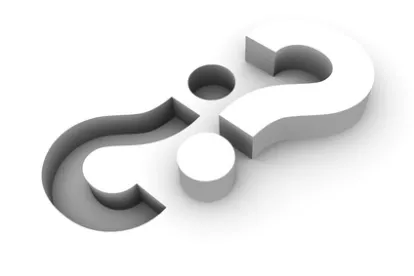Expert testimony is a vital part of modern trial practice. For an expert to testify in a trial, however, the party that intends to call the expert must show that the proposed testimony meets the requirements of the applicable rules of evidence. These rules generally require that expert opinions be delivered by a person with adequate qualifications, that they be the product of reliable methods, and that they be relevant to an issue in question.
In many cases, these inquiries will be straightforward. But in cases regarding business practices, the questions of methodological reliability and relevance often are hazy because courts are wary of allowing witnesses, often with lofty credentials, to tell the jury what result they should reach. Indeed, the drafters of the Federal Rules of Evidence expressed their disapproval of “opinions which would merely tell the jury what result to reach, somewhat in the manner of the oath-helpers of an earlier day.” The problem that arises in cases involving business customs and practices is that, unlike in more technical fields (such as fields in which experts can base their testimony on scientific testing they have performed), the business expert’s methodology involves the review of documentary or video evidence and the delivery of opinions based upon what the expert has reviewed. Given this procedure, how can such an expert testify regarding customary practices without simply telling the jury what result to reach?
Courts across the country have grappled with this issue. In Woods v. Lecureux, the U.S. Court of Appeals for the Sixth Circuit affirmed the trial court’s decision to prohibit an expert from testifying that prison officials had acted with deliberate indifference, as it would have amounted to the expert offering the jury a legal conclusion from the witness stand. Likewise, in In re Rezulin Prods. Liab. Litig., a federal trial court in New York excluded intended expert testimony consisting of factual narratives, subjective interpretations of conduct, and views as to the motivations of parties. The court felt this testimony would usurp counsel’s role in making argument at trial and the jury’s role in interpreting evidence.
On the other hand, in First Tenn. Bank Nat’l Ass’n v. Barreto, the Sixth Circuit upheld the admission of a banking expert’s testimony where the expert, who had decades of banking experience, explained lending standards and a bank’s failure to comply with them. And, in United States v. Johnson, the Sixth Circuit found that a trial court properly allowed a police officer with experience in investigating drug crimes to testify that conduct he observed was drug trafficking. This was because the officer “did not express his opinion on the defendant’s guilt, or the credibility of other witnesses, or on what the law required.”
In all four cases, the expert reviewed the conduct at issue and delivered opinions based on what he or she saw. What is the distinction between these cases? Here are four considerations to distinguish an admissible expert from an improper “oath helper” or “witness advocate.”
First, an expert must have specialized knowledge or experience in an area that is not within the common knowledge or experience of the average juror on a relevant issue in the case. An expert testifying on an issue that a jury needs no help understanding is not helpful.
Second, an expert will base his or her opinions on specific, articulated industry standards, while an oath helper will just say what he or she thinks about the facts presented. Reliable testimony on the ordinary practices in a profession is a proper subject of expert testimony. Industry standards need not necessarily be written, as some business areas may not have discretely-stated or peer-reviewed standards. But reliance on specific, commonly-accepted standards of conduct distinguishes an expert from a “witness advocate” offering only personal, subjective beliefs about an issue.
Third, an expert who plans to opine on someone else’s motives, intent, or state of mind, or simply that a witness is lying or telling the truth, will face scrutiny. These issues typically are left to the jury to resolve, and courts often conclude that expert testimony on these topics is unreliable and speculative, and therefore unhelpful.
Finally, opinions that amount to statements of law are problematic. An expert who intends to opine that someone committed fraud, or breached a contract, or who otherwise intends to tell the jury what the law is (or should be), will run into trouble. Opinions approaching legal topics must be offered in the way an ordinary layman would describe the conduct at issue.
In sum, an expert who offers specialized, non-speculative knowledge applied to relevant facts, and who will not offer a personal view of a party’s motivations from the witness stand, should be allowed to offer opinions that help the jury make an independent assessment of the issues to be decided in the case. A witness who cannot offer reliable standards, who intends to give subjective or speculative opinions, and who plans to just tell the jury what result to reach without explaining the basis, will face scrutiny as an “oath helper.”
When deployed properly, expert testimony can be vital to a case. If you put forward an “oath helper,” however, it might prevent you from even reaching the courtroom. Making sure you use experts properly can be the difference in victory or defeat.



 />i
/>i
